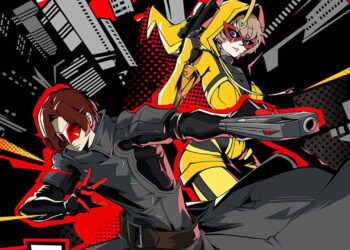The standard edition of the game and the Deluxe edition of the game are exactly the same, except that the Deluxe edition gave you access to 5 extra items in the game (an extra gun, an extra grenade type, etc.).
then, Which is better FIFA 21 Champions Edition or Ultimate Edition?
While the Champions Edition has more to it than the standard edition, it is not as comprehensive in its offering as the Ultimate Edition, which offers early access and FUT items. Kylian Mbappe is the cover star for all three editions, a change from earlier games which featured a different player on each.
hence, Is Sims 4 standard or deluxe better?
The standard edition of The Sims 4 includes only the base game. The Digital Deluxe Edition contains the base game plus a few extra bits of content for Create-a-Sim and Build/Buy mode. The Digital Deluxe Edition is the best choice players can buy.
indeed Whats the difference between Standard Edition and Ultimate Edition?
Standard Edition – The cheapest of the three options, the Standard Edition gives players everything they need to get up and running in the game. … Ultimate Edition – For the real serious players the top-spec option is the Ultimate Edition which gives players up to 24 Rare Gold Packs with the purchase.
and What is game Deluxe Edition?
A Deluxe Edition is typically comprised of the base game plus some additional content. … A new Deluxe Bundle – This bundle will combine the base game and the deluxe content together for a discount percentage that you define.
Is it worth getting FIFA 21 Champions Edition? The FIFA 21 Champions Edition is the best bet if you casually play FIFA Ultimate Team and would normally spend a little money on FUT packs in the game. With this, you get a nice head start with bonus items and you will get new packs each week.
Table of Contents
Is FIFA Ultimate Edition worth it?
First off, you can argue it is worth purchasing this edition literally just for the 4,600 Fifa Points. In Ultimate Team, 4,600 Fifa Points would normally cost you £31.99. … If you have played Fifa Ultimate Team before, you will know how much of a boost Fifa Points can give you at the start of the game.
Which FIFA version is the best?
The 10 Greatest FIFA Video Games Ranked, According To Metacritic
- 1 FIFA 10 (91)
- 2 FIFA 13 (90) …
- 3 FIFA 12 (90) …
- 4 FIFA Football 2003 (88) …
- 5 FIFA 09 (87) …
- 6 FIFA 14 (87) …
- 7 FIFA 17 (85) …
- 8 FIFA Football 2005 (85) …
Why are Sims 4 expansions so expensive?
I think the reason why the price is so high is to play with the attraction of sales. The packs’ price is twice what they are worth, but since there is an Origin sale every two weeks, it boosts sales by making customers think it is a good deal, when actually they pay the price the game actually is worth.
Is it worth buying Sims 4 Deluxe?
The Sims 4 Digital Deluxe… worth it? All in all, the extra $10 for the two additional packs plus soundtrack is probably only worth it if you’re a die hard Sims 4 fan.
What is the difference between standard and deluxe Sims?
The standard version only contains the base Sims 4 game, while Digital Deluxe copies include the base game plus the DLC packs Life of the Party, Up all Night, and the Awesome Animal Hats pack, plus a digital copy of The Sims 4 soundtrack. , Blogger and Gamer. The Sims™ 4 Digital Deluxe Upgrade.
Is it worth getting FIFA 21 Ultimate Edition?
If you play a lot of FIFA Ultimate Team, then you should consider the FIFA 21 Ultimate Edition. This allows you to get early access, and a ton of bonus items for FUT. … Up to 24 FUT 21 Rare Gold Packs (2 per week for 12 weeks) 1 Cover Star Loan FUT Item (for 5 FUT matches)
What is the difference between Hitman 3 Standard Edition and Deluxe Edition?
The only difference between the two editions is the Deluxe Pack, which includes 6 Deluxe Escalations, in-game suits, items and weapons, a digital soundtrack for each game in the World of Assassination trilogy, an introduction to each HITMAN 3 campaign mission by the Game Director and a digital artbook that highlights …
Does Deluxe Edition come with all DLC?
The Deluxe Edition is the cheapest way to purchase the game and all DLC.
What is the difference between Marvel Avengers and the deluxe edition?
1-1 of 1 Answer
Marvel’s Avengers: Deluxe Edition includes the exclusive Obsidian Outfit pack for your Avengers, including Captain America, Iron Man, Black Widow, Thor, Hulk, and Ms. Marvel, along with six exclusive Obsidian-themed nameplates to further customize your gameplay cosmetics.
What is the difference between FIFA 21 and Ultimate Edition?
Standard Edition – The cheapest of the three options, the Standard Edition gives players everything they need to get up and running in the game. … Ultimate Edition – For the real serious players the top-spec option is the Ultimate Edition which gives players up to 24 Rare Gold Packs with the purchase.
Which FIFA 21 is the best?
FIFA 21 ratings: the complete FIFA 21 top 100 players list
- Lionel Messi, Barcelona (93)
- Cristiano Ronaldo, Piemonte Calcio (92)
- Robert Lewandowski, Bayern Munich (91)
- Kevin De Bruyne, Manchester City (91)
- Neymar Jr., Paris Saint-Germain (91)
- Jan Oblak, Atletico de Madrid (91)
- Virgil van Dijk, Liverpool (90)
What is the difference between Beckham Edition and Champions Edition?
Almost $20 more expensive than the Standard Edition, the FIFA 21 Champions Edition is available for $79.99. With a discount, however, it is also being sold for $32.75 on some sites. As the Beckham Edition is like the Standard Edition, it will retail for $59.99 or lower with a discount available.
What is the difference between FIFA 21 Ultimate Edition and Standard Edition?
Standard Edition – The cheapest of the three options, the Standard Edition gives players everything they need to get up and running in the game. … Ultimate Edition – For the real serious players the top-spec option is the Ultimate Edition which gives players up to 24 Rare Gold Packs with the purchase.
What do you get with FIFA Ultimate Edition?
What features does the FIFA 21 Ultimate Edition have?
- Limited-time bonus — An untradeable FUT 21 Ones to Watch item.
- 3 days of early access.
- Up to 24 Rare Gold Packs, 2 per week for 12 weeks.
- Cover Star Loan Item, for 5 FUT matches.
- Career Mode Homegrown Talent — A local youth prospect with world-class potential.
What do you get in the FIFA 21 Ultimate Edition?
3 days Early Access (play from October 6) Career Mode Homegrown Talent (local youth prospect with world-class potential) Up to 24 FUT 21 Rare Gold Packs (2 per week for 12 weeks) 1 FUT Ambassador Loan Player Pick FUT Item (Choose 1 of 3 player items for 3 FUT matches)
Is FIFA 14 or 15 better?
FIFA 15 definitely triumphs over it’s predecessor here. Although the standard game view doesn’t show much difference, it’s during the replays and moments when the ball is out of play, that you notice just how far EA has gone with graphics for FIFA 15. … All these little but important details are not present in FIFA 14.
Is FIFA 20 better than 21?
What are the differences between FIFA 21 and FIFA 20? … The overall gameplay appears to have improved in FIFA 21 too, with things such as passing and dribbling getting better, while the AI has been augmented to provide a better, more enjoyable, gaming experience.
Is PES better than FIFA?
The soccer is far and away better than FIFA gameplay, but that’s not a high bar to clear. … PES has a lot of similar elements and features that make it look like a discount version of FIFA. Both games are barebones in presentation and user interface. FIFA allows you to create your own manager.







Discussion about this post